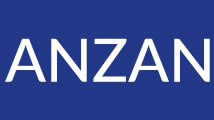Neurology As A Career
In July 1990, US Presidential Proclamation 6158 designated 1990-2000 as the “Decade of the Brain” and, partly as a result, this century will bring major advances in our understanding of brain mechanisms and brain diseases, in our ability to diagnose, and in our ability to treat. This is an exciting era for neurologists because it is the brain that renders us human and defines our very being.
Neurologists are practitioners who deal with disorders ranging from diseases of muscle to disorders of cognitive function and behaviour, using clinical tools ranging from molecular biology through electrophysiology to functional neuroimaging.
The Australian and New Zealand Association of Neurologists (ANZAN) is a united, committed organisation and a strong public voice for neurology throughout Australia and New Zealand.
One of the major objectives of the Association is to provide a comprehensive structure to allow neurologists and neuroscientists to interact, with the aim of advancing knowledge of the nervous system. It maintains communication, practice and research opportunities, and aims to ensure the highest professional standards for the practice of neurology.
Through its close association with the Royal Australasian College of Physicians (RACP) ANZAN has significant input into education, specialist training, and practice guidelines and in partnership with the RACP oversees the training of neurologists.
ANZAN has an important role in offering the RACP and various authorities expert advice on neurological disorders, and a related role in advocacy for those with neurological disorders at government level.
The brain is the last frontier to be mastered by medical science, but the next few decades will see dramatic strides. For those who see excitement in discovering new fields and exploring new concepts, neurology provides unsurpassed opportunity.
Advances in molecular science and imaging are opening up diagnostic and therapeutic possibilities that could never previously have been envisaged, while at the same time a greater understanding of disease mechanisms is leading to other therapeutic possibilities.
It is an exciting, challenging and rewarding time to be in neurology, and Australia has too few practising neurologists per head of population.
Excellent training and great opportunities in neurology and neuroscientific research are available.
Once training is completed, you have gained Fellowship of the RACP and been granted specialist registration by the appropriate authorities, you have a number of employment options, dependent on opportunity, the type of work you most prefer, and your lifestyle preferences:
- university-employed academic with major research focus
- staff specialist in a teaching hospital with both clinical and academic priorities
- full time or part time private practice
- combination of both private and hospital practice part-time employment
- city or rural practice
““I love what I do. I work in a teaching hospital and have both clinical and academic priorities. I find it a real privilege to see patients, work out their problems, then try to work out new and better ways to help them. Seeing the effects of our research to improve our patients’ lives is extremely rewarding.”
Prof Carolyn Sue
The RACP is ultimately responsible for accreditation of basic training, and the examination and prospective advanced training for those wishing to become neurologists. On successful completion of the training programme you will become a Fellow of the RACP.
The components of neurology training include three years of basic training, a written and clinical examination, then two years advanced training in clinical neurology with responsibility for patient care, and a year of training in an elective area. One year of a relevant MD or PhD may count for the elective year. Each year of your advanced training is accredited with the RACP by the Advanced Training Committee (ATC) in Neurology. This committee comprises members of the RACP and members of ANZAN.
" I highly recommend considering a career in neurology. It is a fascinating and diverse field, with opportunities to subspecialise. My own area of speciality of headache medicine lends itself to outpatient management and flexible hours to allow me to also be primary care giver of my family. With the complexity of the brain, there are fascinating new management options to consider. In the more than a decade of being a neurologist, I have enjoyed participating in a field that has evolved considerably during this time”
Dr Bronwyn Jenkins

